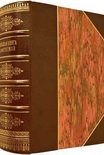Modus Operandi, Mauro Corvasce [love letters to the dead .TXT] 📗

- Author: Mauro Corvasce
Book online «Modus Operandi, Mauro Corvasce [love letters to the dead .TXT] 📗». Author Mauro Corvasce
Many smart con artists know that a bank manager has to initial a check for a large amount before it can be cashed. What they do is scope out the bank to learn the manager's name and, therefore, his initials. They forge the manager's initials on the check and then present the check to the teller at the busiest time of the day. The teller usually will cash the check without question.
The con artist's success depends on his or her ability to appear normal. The job of selecting surnames for use in a bank scam is also a serious undertaking. The names picked should usually fit the racial characteristics of the con artist. Some names repeatedly used in bank scams are Daley, Ferguson, Ford, Hart, Marlowe, Martin, Mansfield, Mellon, Payne, Robinson, Sheppard, Taylor and Wilson. When a banker meets a person using a familiar surname by right or by choice he is inclined to be more than usually pleased to serve him. In banking, to be more than usually pleased means to freely accommodate the person with any services needed. These names appear to have an actual psychological effect upon those who see or use them.
Swindlers not blessed with an honest face can make good use of a uniform. The uniform might be that of an armed service, a civic organization or commercial enterprise. For several years banks in our area have been plagued by a person who masquerades as a filling station employee while negotiating worthless checks. By disguising himself in an oil-stained uniform, generally bearing a major oil company's insignia, he leads bank tellers to believe that he is employed locally and has been sent to the bank simply to cash his employer's checks. These are from a number of banks all bearing different signatures and all made out to the station that he pretends to represent. His average take at each bank was five hundred to seven hundred and fifty dollars.
Several checks stolen from a steel company were cashed at various stores by con artists in work clothes and steel helmets. In another case, checks stolen from a nursing home were cashed by a woman in an immaculate nurse's uniform.
But the key to these types of bank swindles is that the con artists must make themselves familiar to the people employed by the bank, either by frequently walking in and making minor deposits or by going into the bank with an appearance, name and uniform so that they appear to be nothing other than the average Joe simply trying to deposit a paycheck and take a little bit home for his week's wages.
The Free Inspection Con
Whatever your profession or business, the free inspection con is the simplest come-on for a profitable fraud. TV repairmen, auto mechanics, heating and air conditioning engineers, insect and rodent exterminators make the offer for a free inspection by advertising or by door-to-door canvassing. Once inside the TV set, under the automobile or under the house, the most cursory examination will disclose numerous components that need repair or replacing.
If a homeowner has been dumb enough to mail a postage-free return postcard on which he has indicated an interest in having, let's say, his furnace inspected, a smart operator may knock on his door and intimate that he represents a city government agency or utility company and request permission to inspect the home heating plant. The typical procedure of the furnace repair con is to gain access to the heating plant by some ruse and then take it apart and make it so that it will not be operable. At that point the con can refuse to assemble the parts into working condition on the grounds that the furnace is in immediate danger of causing a fire or explosion or of giving off deadly gas fumes.
Dead Man's Curse Con
Sad but true, the obituary columns present another opportunity for con artists. If you or I happen to be one of those listed in the obituary, we do not have to worry about being victimized, do we? The obituary columns of newspapers provide endless sucker lists for a variety of swindles. Packages of worthless merchandise "ordered by the deceased" are delivered COD to the next of kin. Or the bereaved are notified that the deceased had an insurance policy with one premium still unpaid. "Just pay the $35 premium and the insurance check will be sent to you by return mail," states the con artist, but the money never is because the policy never was.
Heir hunters are still around too. People with fairly common surnames get letters every day telling them about the death in some distant city of a relative who left a sizable estate. The suckers are asked to identify themselves and send ten or fifteen dollars as a filing fee, "So that you can be put on the list to be paid." The filing fee goes directly into the con artist's pockets.
The Bank Examiner Fraud
The bank examiner fraud is a swindle based on the hidden desire of many people to serve as a secret agent for the police. Victims are located through telephone books or through surveys. The first telephone call to the victim is double-talk alleging that there is some problem with their account at the local bank. The next call is allegedly from an officer of the bank. The spiel is that one of the bank's employees has been tampering with the accounts of depositors, and they want to catch him, but they need the victim's help to do so.
Cooperative victims are then informed that they should simply go to the bank, withdraw a specific sum, usually just short of the victim's total deposited funds and bring it home. The victim is assured that





Comments (0)